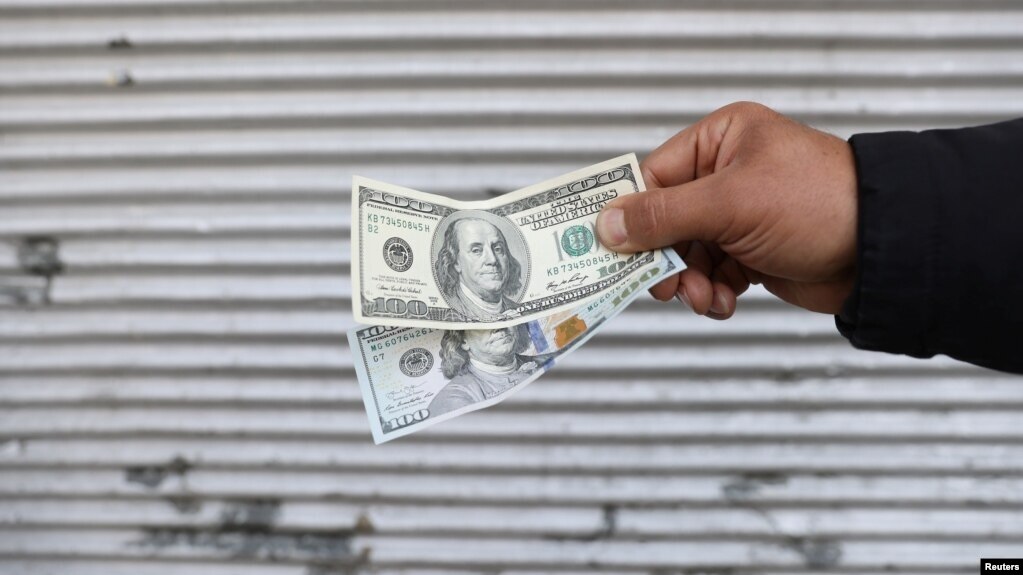Which currencies stand to gain from geopolitical conflict?
With geopolitical risk very elevated in the Middle East right now, we might wonder whether the tensions will spillover to create volatility in the FX market.

The US dollar would seem to be in an ideal position given that the US is both broadly self-sufficient in energy and seemingly attracts safe-haven flows when war, or other high-risk events occur.
>> Debt woes for the US dollar
Wars tend to be events that are most likely to have stagflationary consequences with the higher-inflation stemming usually from higher energy prices and this, plus a rise in economic uncertainty can account for the weaker growth. Of importance, when it comes to currencies is whether the economic impacts are symmetric or not, and whether safe-haven demand escalates.
Usually, the impact of geopolitical conflict is not symmetric because different countries have different levels of sensitivity to higher energy prices. Most of these clearly relate to whether countries are primarily energy exporters or importers. But even energy exporters can find that any positive currency benefit from conflict and higher prices is more than offset by heightened risk aversion and safe-asset demand arising for the likes of the yen and Swiss franc; both of whom are energy importers.
The dollar would seem to be in an ideal position given that the US is both broadly self-sufficient in energy and seemingly attracts safe-haven flows when war, or other high-risk events occur. The war in Ukraine, for instance, which begun with Russia’s attempted invasion on February 24th 2022, saw the dollar rally some 17% in the following 6 months. But that war is very different to the conflict that has escalated in Israel and Gaza recently.
For a start, the war in Ukraine saw European gas prices rise dramatically compared to those in the US because Europe was hugely dependent on imported gas from Russia. The resultant deterioration in the euro zone’s terms of trade relative to the US rightly hit the euro very hard against the dollar, and hit other European currencies as well. It has only been since European gas prices fell back down again that the euro has been able to claw back these losses against the dollar.
Could conflict now in the Middle East produce as much dollar strength? In the Standard Bank’s view, it seems unlikely. For a start, the scope for significant energy price rises this time seem to lie in oil, not gas, and particularly if Iran becomes involved and receives more sanctions as a result. This could cut global oil supply notably and, while it would produce similar directionality in terms of a relative deterioration in Europe’s terms of trade compared to the US, the degree will likely be a fraction of what we saw when European gas prices surged.
>> Impacts on the real currency story
To give this some context, European gas prices rose by more than three-fold in the six months following Russia’s attempted invasion. And while there is clearly lots of talk today that oil prices could climb above USD100pb on current Middle East tensions, nobody is talking about USD300pb. Hence it seems likely that if energy importers like those in Europe and Japan do see their currencies fall against the dollar it won’t be anything like the scale that we saw through the spring and summer of last year.
Is it possible that other alleged safe haven currencies like the yen and the Swiss franc could outperform the dollar even if energy prices rise materially? Mr. Steve Barrow, Head of Standard Bank G10 Strategy, thinks it is unlikely in the case of the yen as the inflationary consequences of higher energy prices could keep global bond yields as high as they are today, or even higher. And with Japan still supressing its 10-year yields, the wide rate differential could still mean a weaker yen, at least against the dollar, not a stronger yen.
What about the Swiss franc? Mr. Steve Barrow said it has appeared to perform the safe-haven role better than the yen, if not the dollar. Franc strength does seem possible, especially if the US gets dragged into the conflict in the Middle East in a significant way. But against this is the fact that, unlike Japan, the SNB could revert to intervention to limit franc strength now that inflation seems to be coming down and rate hikes have probably stopped. Potential safe-asset buyers could be put off if the SNB is actively trying to weaken the currency. All this suggests to us that it will be the dollar that is still the primary beneficiary of heightened geopolitical risk in the Middle East; we just think it won’t go up very much.








